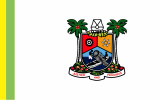Growing up in Nigeria, everyone listened to Michael Jackson’s songs, and watched his music videos and live performances, even his interviews. People loved him, and wanted to sing, dress and dance like him. People also talked about his body a lot. A huge number of times, it was his supposed re-creation of himself that generated the most conversations about him in Nigerian homes. Older people who knew the star from his Jackson 5 days always spoke about his evolution with a lot of disdain and borderline shame, turning it into a teachable moment for younger ones around them.
Michael Jackson’s popularity made him an easy reference for chats about cosmetic surgeries, but it wasn’t, and has never been unique to him. Nigerians have generally seemed to have a thing against cosmetic surgeries, because being a very religious nation, people often link plastic surgeries, as both cosmetic and actual plastic surgeries are more frequently called in Nigeria, to attempting to play God.
In a 2016 Punch interview, a US-based plastic surgeon highlighted ‘looking natural’ as one of the reasons Nigerians were skeptical about plastic surgeries; a reason second only to the safety of the procedures. Despite travelling miles for procedures in the US, many Nigerians still saw sticking with a natural look as their version of body positivity and way of supporting the notion that every body is beautiful. But body-shamers strongly disagree.
A global study by Obesite, a medical journal, showed that about 94% and 65% of teenage girls and boys respectively have been body shamed. The number of men rises to 83% as they grow older while that of women drops 1% according to another survey by FitRated. FitRated’s study further pointed to the fact that women experience longer effects of being shamed more than men do, and most times have to live with the negative comments about their bodies throughout their lives, a huge blow to the existing body positivity movement.
These statistics and trends are why many celebrities have taken it upon themselves to redefine what a positive body really is. For stars in Hollywood and the US music space getting the body you want is no longer something they hide. There are now photoshoots to celebrate a successful cosmetic surgery, almost like another birthday, because for many, going through the process is like a rebirth, and an all round confidence booster. Beyond just stars, cosmetic surgeries have become quite common in the United States with nearly 20 million of them happening annually.
Back home in Nigeria, there are also celebrities who are challenging the status quo of ‘looking natural’ as opposed to getting the body you want. Top of the list are Nollywood actress Tonto Dikeh, TV host Toke Makinwa and new entrant, Mercy Eke of Big Brother Naija. They have all spoken freely about why they had their surgeries and despite social media backlash from time to time, they still count their decisions as nothing they regret.
Despite the progress one could say has been made as regards the openness with which cosmetic surgeries are now spoken about, there are still a number of challenges. The close relation of cosmetic surgeries to the entertainment scene, and the fact that people from the sector have been tagged the poster children of this new body-choice movement, often feeds the idea that all the surgeries are in a way related to sex appeal. Many people can’t seem to shake the feeling that everytime someone uses the “get the body you want” slang, there is often an unspoken sexual undertone.
Another even bigger challenge is that the issues around the safety of cosmetic surgeries won’t easily go away in Nigeria. A random survey of young Nigerians between 20 and 25 years, showed that the fear of side effects or losing their lives under the knife was a key reason for not getting surgery done.
While other issues such as money and independence seemed to be factors as well, a larger number of people were simply afraid of these surgeries. One of the respondents was of the opinion that even if they did one surgery and it was successful, they won’t be able to stop, because there would always be a need for some form of maintenance or more enhancement and this might bring them to harm in the long run. Although these fears are very valid following reports of deaths in different cosmetic surgery clinics across Nigeria, one cannot help but wonder the difference in proper education about cosmetic surgery could make in changing this perception. This makes MultiChoice Nigeria’s new medical reality TV show – Dr. Laser, a timely intervention for the growing cosmetic surgery industry in Nigeria.
The show named after the moniker of the doctor behind most of the bodies we have come to love on TV and the pages of Nigerian magazines, tells a more complete story of why people get cosmetic surgeries. On the show, Dr. Abayomi Aranmolate popularly called Dr. Laser, describes in better detail why different people visit his hospital located in Lagos, Nigeria, citing fat removal, fat transfer and cleft repairs as some of the most frequent requests he gets. He also gives each patient the opportunity to describe to the viewer all the emotions and calculations that go into making a decision about plastic or cosmetic surgeries, making for a more rounded story.
On the other hand, the show hopes to allay some of the fears that exist by giving an insider view of what goes into each sculptured frame or fixed body scar. For the first time, many Nigerians will get to see an expert Nigerian plastic surgeon at work, and possibly put some of their worries behind them.
One thing Nigerians and the world generally have to agree on is that body enhancement has come to stay. The industry trends show it, the media shows it, even the shift in how the conversation is now framed shows it. Just like every other advancement of science, it is usually a matter of time before everyone embraces it and takes it as the norm. It might take a lot of educating and more open conversations to get there, but the shift always happens.
For Nigeria, that open conversation is already happening with the Dr. Laser reality TV show, a huge step for the type of society we come from. When it has run its 8-week course on African Magic Showcase, it would be nice to see how much behavioural change the weekly 9pm Friday show has brought.
















